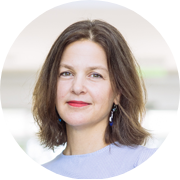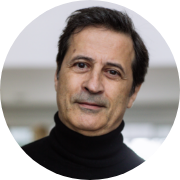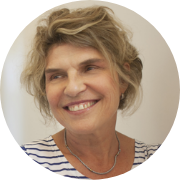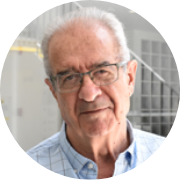Q. Candidates are jockeying for position ahead of Argentina`s August primaries and the October midterm elections. Which races are shaping up to be the most important? What issues are driving the campaigns? How might the midterm election results affect President Cristina Fernández de Kirchner over her remaining two years in office?
A. Gonzalo Paz, visiting researcher at the Center for Latin American Studies at Georgetown University: "If the Oct. 27 midterm elections held were today, the government would receive substantial support in many provinces, however it would probably be defeated in many major districts: the city of Buenos Aires, Santa Fe, Córdoba, and Mendoza. So the district that would probably tip the balance is the province of Buenos Aires, the biggest of all, and in it, specifically the highly populated belt surrounding the city of Buenos Aires.
The groundbreaking news is that the young and popular mayor of the town of Tigre, Sergio Massa, will compete as a candidate for representative, which might split the government`s supporters in the area.
Former President Néstor Kirchner was defeated while running as a candidate for representative of this province in the midterm elections of 2009, but his wife Cristina scored a great victory and was elected president two years later. It is important to stress that there isn`t a unified opposition, thus the government would still be the most important political force.
So far, the real political issue in the campaign is the possibility of the president aspiring to a third term in 2015, something that is currently not allowed by the Constitution. In order to reform the Constitution, the Congress must have a two-thirds majority to declare the need for reform, specify the parts to be reformed and call a reforming convention. According to the results of the election, the government will decide to go ahead in one way or another or will abandon the project."
A. Luigi Manzetti, Colin Powell fellow at the John G. Tower Center for Political Studies at Southern Methodist University: "In October, Argentina will have congressional elections to elect half of the members of the Chamber of Deputies and a third of the Senate. For the Chamber of Deputies, the most important races are in the province of Buenos Aires, the Federal District and to a lesser extent Córdoba, Santa Fe, and Mendoza. President Cristina Fernández de Kirchner`s own left-wing faction of the Peronist Party, the Frente Para la Victoria (FpV), and minor parties allied to it currently hold a comfortable majority in the Senate, which is not at risk. In the Chamber of Deputies, the FpV has 116 deputies supported by an additional 17 from minor parties. Of the seats up for renewal, about one-third belong to government supporters.
Unlike the opposition, which is very fragmented, the FpV has a strong and well-financed party machine nationally that can turn out the vote. The FpV`s strongholds are in small and cashstarved provinces, which have disproportionally benefitted from Kirchner`s largesse in terms of discretional federal transfers and anti-poverty programs.
The biggest challenge to Kirchner remains the Federal District and the province of Buenos Aires, where disaffected Peronist factions led by Sergio Massa and Francisco De Narváez will lure votes away from her support base, particularly middle-class voters. The latest projections see Massa`s party ahead of the FpV. Córdoba, Santa Fe and Mendoza also lean toward opposition candidates from other parties. Kirchner is asking voters to renew their support for her income distribution policies favoring the lower classes and her plans to `democratize` the judiciary and bring it under political control. Her opponents instead are capitalizing on her administration`s deficiencies in addressing what polls show as most pressing issues: crime, inflation, unemployment and low salaries. If she retains a majority in both houses of Congress, she will mount a final assault against the independence of the judiciary and the media conglomerates critical of her policies. If she loses control of the Chamber of Deputies, and refuses to compromise with dissident Peronists, she may become a lame-duck president, plunging the country into further polarization and economic instability."
A. Carlos Gervasoni, professor in the department of political science and international studies at the Universidad Torcuato Di Tella in Argentina: "In a campaign marked by an ideologically diffuse kirchnerismantikirchnerismo split, the key race will take place in the province of Buenos Aires: it elects the most deputies (about 27 percent of all seats) and, more importantly, two dissident Peronist groups are running against the list supported by President Cristina Kirchner.
One of these comes directly from within her administration. It is headed by the popular former chief of cabinet (2002009), Sergio Massa, and it has a good chance of winning. The second is led by tycoon Francisco de Narváez (who defeated Néstor Kirchner in the 2009 midterm elections). The radicalbased list headed by Margarita Stolbizer and Ricardo Alfonsín is also a significant contender. In such a competitive environment and with several visible issues hurting the incumbent (low growth, high inflation and an ongoing corruption scandal involving the late Néstor Kirchner), there is a good chance that the FpV will be defeated. Its prospects are worse in the next four largest districts (the Federal District, Córdoba, Santa Fe and Mendoza), although it will probably do well in the overrepresented and traditionally Peronist smaller provinces. All in all, the FpV might repeat the rather weak showing it had in the 2009 midterm elections: enough to keep its current plurality in the Chamber of Deputies and in the Senate, but far short of the two-thirds majority required for a constitutional reform. Thus, Cristina will be a lame-duck president, weaker than in any of her previous six years."
A. Julio Burdman, president of the Observatorio Electoral Latinoamericano and director of the School of International Relations at the University of Belgrano in Argentina: "This mid-term election in Argentina, like others in the past, has its eye on the presidential election that will be held within two years. Following the decision of the Supreme Court to suspend the popular election of members of the Council of Magistrates (which had it gone into effect, would have also occurred in August, along with the primaries), the election of legislative positions will have a more local flavor. In the province of Buenos Aires, the most important because almost 40 percent of Argentines vote there, there are two salient occurrences. The first is the rise of young mayors to the national political arena. Martín Insaurralde, Sergio Massa, Dario Giustozzi and other community leaders seeking seats in the Chamber of Deputies are the new protagonists of an important political renewal. The other is the launch of the Frente Renovador Bonaerense, led by Massa and Giustozzi.
The fact that the main electoral competition is between the official Frente Para la Victoria and the semi-opposition Frente Renovador (its members say that Kirchner`s Argentina is `neither heaven nor hell,`) produces another political debate for the years to come. The axis already does not seem to be kirchnerismantikirchnerismo, but rather a discussion that accepts kirchnerismo as reality and asks what will come next. Massa and Giustozzi do not reject Cristina Kirchner, but look to succeed her. In the current scenario, it is difficult for the ruling party to lose seats in Congress, and its ability to govern is not threatened, but the discussion about postkirchnerismo is moving forward. The principal electoral issue in Argentina today is the fight between hard-line kirchnerismo that wants to influence future policy and the moderate post-kirchners who want themselves to be the protagonists."











